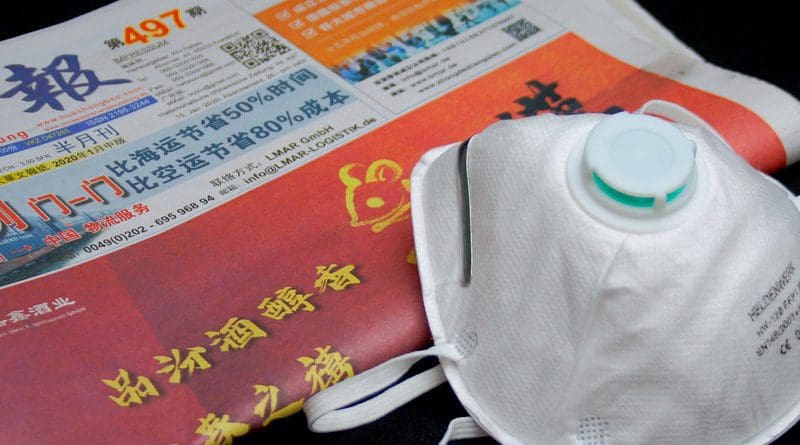China And Its ‘Zero Covid’ Policy – OpEd
With the progress of inoculation, various countries with strict anti-covid rules have altered their strategies. China, on the other hand, shows no signs of changing and moving to a policy of “coexistence” with the coronavirus.
China is credited as the last country in the world to proceed with a strict “zero covid” policy. This one-time entails locking down entire cities if a single case of covid-19 is detected. Countries such as Australia, New Zealand, Singapore, and the USA have recently relaxed their strict “zero covid” policies due to their unsustainability and with the highly contagious delta variant, the People’s Republic of China continues its attempt to eliminate the coronavirus from its territory.
When the pandemic first emerged, the Chinese Communist Party extolled its authoritarian system and a more robust measure of controlling the pandemic. China imposed strict lockdowns, mass testing, and travel restrictions nationwide. This measure to a large extent helps China to recover almost immediately compared to other Western countries. The rest of the world to date is still has suffered from rising cases couple with serious economic effects of lockdowns. These strategies others called it “authoritarian system” have ensured Chinese citizens have returned to a relative level of normalcy. Economic and social activities are at their high. However, some experts are still questioning for how long will this be in place after nearly two years after the first case of COVID-19 was detected in the Chinese city of Wuhan.
Flight reduction and compulsory quarantine
The “zero covid” policy of China includes travel rules, with strict requirements for people entering the country, a reduction in the number of international flights, and up to three weeks of mandatory quarantine upon arrival. Many experts believe China is unlikely to reopen its borders not for now or maybe until after the 2022 Beijing Olympics. This will mostly depend on the number of cases that will be reported before, during, and after the games. Chinese officials announced in September that spectators outside China would not be allowed to watch the games. Within China, public health measures are still in place and enforced on all persons living in China. As to when they will be lifted remains a mystery irrespective of the gains over COVID-19 by China.
Recently there seems to be an increase of covid-19 cases in China after the week-long national holiday. This has resulted in COVID-19 spreading to many provinces. This has caused This event is of great worry to the Chinese government due to the likelihood, that things could get worse if it reopens the border now. Over the past three days, China has reported more than 200 cases of covid-19 and nearly 150 of them were domestically transmitted, meaning people were infected within Chinese territory.
How effective are China’s vaccines?
Various experts have pointed out the relatively low effectiveness of Chinese-made vaccines compared to others vaccines in use around the world such as AstraZeneca, Pfizer, Moderna, Johnson &Johnson, BioNTech. Chinese-made Sinovac’s (Coronavac) and Sinopharm’s covid-19 vaccines are relatively 51% and 79% respectively effective in preventing symptomatic infection, according to the World Health Organization (WHO), citing clinical trial data of phase 3.
Some experts say there are still questions about the effectiveness of Chinese vaccines against the delta variant. According to Chunhuei Chi, director of Oregon State University’s Center for Global Health, In the USA, “I think they don’t have confidence in their vaccine. So despite having vaccinated more than 70 percent of its population, China hasn’t relaxed the restrictions.” Additionally, Karen Grepin, a professor of public health at the University of Hong Kong, also says China will wait for the ideal conditions before letting its guard down. “Although the vaccination rate in China is high, vaccines that have been predominantly used are not as effective as other immunizers.
Can China ever”live with the virus”?
According to Chen Xi, a professor of Yale, the Winter Olympics, and the Chinese Communist Party’s National Congress in 2022 contribute to Beijing’s decision to maintain the “zero covid” policy. These events still seem far away, but any little outbreak before during, and after the events will put extreme pressure on the Chinese authorities.
According to Hu Xijin, editor-in-chief of the state tabloid Global Times, writing on China’s “covid zero” policy, he stated that China should not be abandoned the policy midway. If China embraces the idea of “coexistence with the virus,” Hu wrote, thousands of cases could resurface in the country. China’s ‘zero covid’ policy will not last forever, but there’s the likelihood of policy adjustments from time to time.
*Francis Kwesi Kyirewiah, Jilin University, School of International and Public Affairs, China

